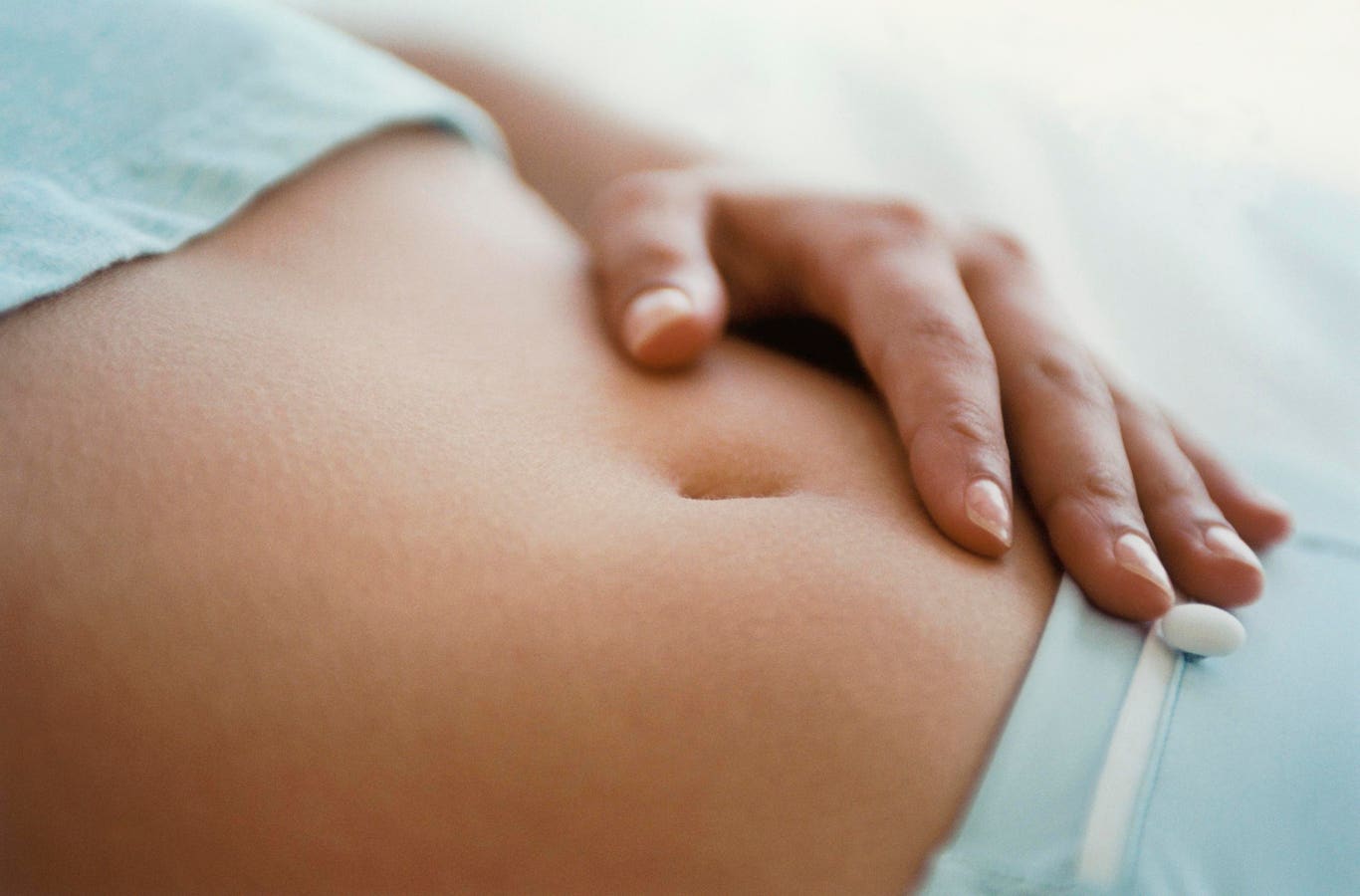Topline
A new trend called navel oiling—putting essential oil in the belly button for health benefits like weight loss—has gained popularity on TikTok, but although it’s linked to an ancient practice, some experts warn against the lack of scientific evidence to support it.
Key Facts
Navel oiling (or the Pechoti method) is a practice that involves filling the belly button with oil to help with weight loss or other health concerns like period cramps, endometriosis, gut health, stress and digestion.
The process typically involves filling the belly button with oil before bedtime and letting it absorb overnight, Nishita Shah, an Ayurvedic practitioner and senior faculty and admissions director at the Ayurvedic Institute in North Carolina, told Forbes.
Part of a traditional Indian holistic practice called Ayurveda, navel oiling has recently taken off as a trend on the wellness side of TikTok, with the hashtag #naveloiling garnering over 23 million views and several viral videos; one video with five million views claims navel oiling treats polycystic ovary syndrome and painful periods, and helps grow the hair and nails.
Another TikToker claimed to have lost 14.2 pounds over the span of seven weeks from applying castor oil in her belly button, though she stated in the comments she “eliminated refined sugar and processed foods” during this time period.
Some experts are wary: One 2014 paper in the journal EPMA reviewed the limited research and anecdotal evidence available on Ayurveda, and concluded the scientific evidence to support the practice was “extremely poor,” urging the Ayurveda sector to address the need for evidence or “face the critical analysis as per the conventional approach of [evidence-based medicine]
.”
Shah is hesitant to pinpoint navel oiling as the primary cause of weight loss because of outside factors like diet and exercise, but she believes weight loss can happen as an offshoot from finding and treating the root cause of the weight gain—like stress—with navel oiling.
Contra
Many experts are skeptical of practices like navel oiling. Ayurveda was only examined in one scientific study in the Cochrane Library, a database of high-quality healthcare research, at the time the 2014 EPMA article was written, and not much has been published since. Jen Caudle, a board-certified family physician, told Rolling Stone she’s “not familiar with any evidence” indicating castor oil can help resolve health problems. Applying oil to the belly button in particular “does not make sense, as everything closes off and turns to ligaments after the (umbilical) cord comes off,” Hannah Dahlen, professor of midwifery at Western Sydney University, told the Australian Associated Press. Because the belly button is a “sealed orifice,” oiling it is “not a whole lot different, in my opinion, than applying (oils) to the forearm, the back of the knee, the elbow or anything like that,” David Harder, a clinical herbalist, told USA Today. When it comes to losing weight, there are no scientific studies linking navel oiling to weight loss, though there are several studies that promote a calorie deficit—or eating less calories than the body burns a day—as the most important factor for weight loss. Castor oil has only been approved by the Food and Drug Administration for use as a laxative, not weight loss or any other use. However, there may be a benefit: Oiling the belly button may help “loosen up any crud,” making the dirt easier to clean, dermatologist Benjamin Barankin told Yahoo Canada.
Key Background
Within Ayurveda, navel oiling is referred to as nabhi chikitsa, or navel therapy. The belly button is believed to be a powerful healing region because it’s the center of the torso and gastrointestinal tract, and different oils are meant to treat different ailments, according to Shah. Still, there’s not much standard scientific evidence to back it up. However, there’s research indicating essential oils can help alleviate stress, headaches, insomnia, muscle pain, respiratory issues and depression when used with aromatherapy.
Tangent
Chinese navel therapy involves grinding medicine or herbs into a powder and combining it with vinegar to create a paste, which is then applied to the belly button and absorbed into the skin. Participants in one 2006 study who had abdominal fluid swelling were split into three groups: A comprehensive treatment group, which had an herbal paste applied to their navels, underwent colon dialysis with Chinese herbs and used basic treatment methods like diuretics; a simple treatment group, which used basic treatments and an herbal paste; and a control group, which only underwent basic treatment. The comprehensive group had a 74.2% effective rate, the simple treatment group had a 45.8% rate and the control group had an 18.2% rate.
Surprising Fact
Oil pulling, the practice of swishing oil around the mouth to treat the teeth, also went viral on social media earlier this year. Oil pulling is an Ayurvedic practice, and it involves swishing coconut, sesame seed or sunflower oil in the mouth for 20 minutes to remove plaque building bacteria from the mouth. Doing it for 30 days may decrease gum disease, gingivitis, tooth decay, bad breath and cavities by 50%, according to a 2015 study.
Oil Pulling Has Gone Viral On TikTok—But Does It Make Your Teeth Brighter? We Asked The Experts (Forbes)
Fact check: Benefits derived from putting essential oils in belly button are questionable (USA Today)
Read the full article here





